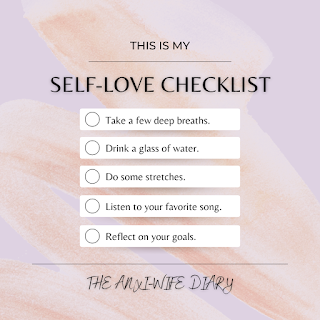12 Indicators You Need More Self Love In Your Life
Ways to tell if you need more self love in your life right now.
There are many ways to determine if you need more self-love in your life from the way you live it right now.
These 12 areas of life are not, in any way, negative things that you may do and should not be thought of negatively.
However, if one or more of them resonates with you as something you do a lot of in your particular situations, it may indicate that you need to exercise more self-love as a way of showing yourself that it is ok not to seek love and acceptance from other sources and give it to yourself more often.
1. Overgiving in an attempt to please everyone around you.
People have many priorities in life. If you start to notice that you are overgiving to others to please those around you, such as friends and family, it may indicate that you need to give more to yourself and learn to take more from self-gratification.
This can include investing too much time in others and not much for yourself or feeling the need to provide for everyone else’s needs before your own.
2. Looking outside for gratification.
If you are constantly seeking gratification and validation from something or someone else that isn’t yourself, You could find yourself relying on other people to award you some sort of worth and validity as a result of it.
If you start looking within your own person and begin to tell yourself daily that you don’t have to seek gratification or validation from anyone or anything else in life, you will start to see your own worth from within and seek it less from others.
3. Neediness
Having neediness as a trait can be emotionally draining, and one where you will only find the feeling of satisfaction when you have the thing or person you need. It is an emotional attachment that often displays as a feeling of not being able to cope or function without it, a crutch.
This is a strong indication that you are emotionally attached to another in such an intense way that being without them causes distress and anxiety.
Practicing more self-love will enable you to effectively learn to be emotionally attached to yourself and find the thing you think you need in others, within yourself.
4.Settling in life, rather than going for what you really want.
Settling within yourself, or commonly called “The Comfort Zone,” can appear in many areas of life where you may think that you are achieving everything you need to, rather than what you desire to.
Having ambitions in life is the thing that can drive you to your true life goal, whether that be in a relationship and having the true feeling of happiness, or in your career where you may be making enough money to pay your bills, but you know you are capable of so much more.
Practicing self-love here would enable you to seek more than just what is comfortable and to strive more for what sets your soul on fire.
5. Not knowing what makes you tick (or excites you).
Not knowing yourself what excites you can be infinitely frustrating; you may know something is lingering there that will make you step into precisely who you are; you just can’t see it or feel it yet.
Self-love, in this instance, will involve a lot of soul-searching, almost playing trial-and-error with your thoughts until one thought or a series of thoughts feels right to you.
This area of self-love also means letting go of anything that does not serve you with positivity and not feeling guilty for cleansing your soul.
6. Always being too hard on yourself and beating yourself up.
Are you your own worst critic?
Where, in most if not all situations, you have that internal voice that always tells you that you should have done better, or you could have achieved more in a specific situation? Especially when you know you did your best with the situation you had?
I think most people will agree that they have a certain degree of the inner-critic present.
To practice self-love here is to learn to silence the inner voice that always picks apart your thoughts and actions and only keep the voice as a mechanism of self-protection, but learning to silence it when it goes into critique overdrive.
7. Eating rubbish all the time and not caring about what you consume.
When you don’t care about what you consume and constantly eat, all the things you know you shouldn’t can be considered self-sabotage.
What is happening here is a lack of self-care, which can be linked to a lack of self-confidence, lack of self-esteem, and definitely a lack of self-love.
To turn this around using self-love, you need to look inside about how this way of eating affects how you feel and how you perceive yourself, and how it could change if you fed yourself all the foods that are good for you and your body and took care of the body you were given.
Self-love here would make you understand that eating in a rubbish way makes you feel just that, rubbish. But you can rectify it.
8. Not prioritising time for yourself.
A lot of people will tell you that putting yourself first is selfish. However, as children, we are always taught to put others’ needs before our own to show compassion and care.
However, putting yourself first is actually one of the most important things to do, and making time for yourself to do the things that fill your cup will make you feel more complete as a person and is the greatest act of self-love you can accomplish entirely on your own.
You cannot pour from an empty cup, so make sure that you use your self-love to fill yours to the brim whenever it is needed.
9. Comparing yourself to others all the time.
If you are one of those people who constantly seek out comparisons in others, you are likely to find a lot of disappointment in life.
When you practice self-love in this instance, you will start to notice that comparison to others is not required to validate and love who you are.
You will also notice that not everyone is on the same path as you in life, or even at the same stage in walking the path we call life, so how can you compare two things that are not the same?
If you begin self-love, you will begin to cherish your journey and realise that you are unique in the path that you are walking.
10. Afraid to take action because of potential consequences.
Are you one of those people who has the biggest hopes and dreams but is afraid to go after them because you are blocked by fear?
Fear is a response that most would associate with danger, the act of being afraid in a situation where the outcome is unknown. But fear is also felt as a response to trying something new or doing things a new way when you don’t know if it will work or not, and it’s often that feeling of fear that stops people in their tracks before they have even tried.
Self-love, in this instance, can teach you that you won’t actually know anything new or do anything better if you let the fear take over.
Teaching yourself that you will get further in life just by trying and failing, as opposed to not trying at all, is a powerful weapon of thought.
11. Not being truthful with yourself and burying things away.
Hiding from your own thoughts and feelings and ignoring them is a sure-fire way to create a confusing world for yourself.
If you do not deal with the things that you feel, think, see and hear, and process them as they happen, your internal storage will be full of things that are left undone, which can mentally weigh a person down.
Self-love can help you to address the things that you are faced with, good and bad, and allow you to process them to an end conclusion, and having an end conclusion allows that thought, feeling, or experience to be compartmentalised in the brain as “Complete” rather than swimming around in an undone void.
12. Mulling over your past all the time.
Your past is your past. It has been and gone, and you have to know that you don’t live there anymore, but it has, however, shaped the person you see in the mirror today.
So when you are living a life that is always dictated by a past event or a feeling from something that is already done and cannot now be rectified, you will find your life stalling to a halt, as you are not allowing yourself to move forward.
Self-love can really help here in ways that can help you to make sense of the past, no matter what it may be, and to learn to understand that although it shaped who you are, it does not define the person you are today and will be tomorrow.
Allowing yourself to think, feel then let it go.
You have to acknowledge its presence, but you cannot physically change it; understanding will enable you to let go.










Comments
Post a Comment